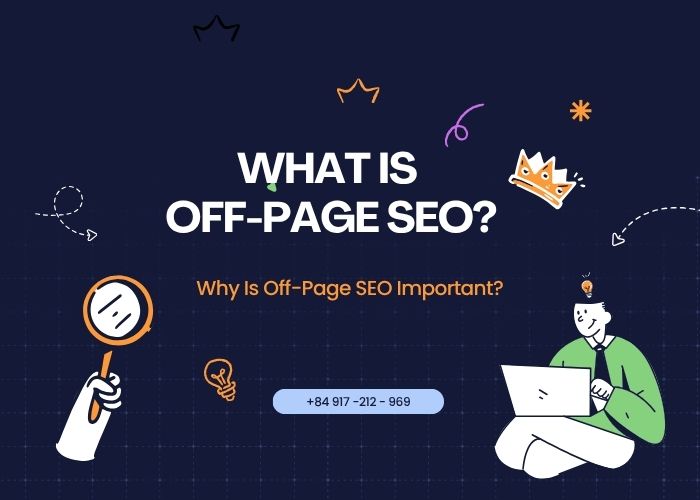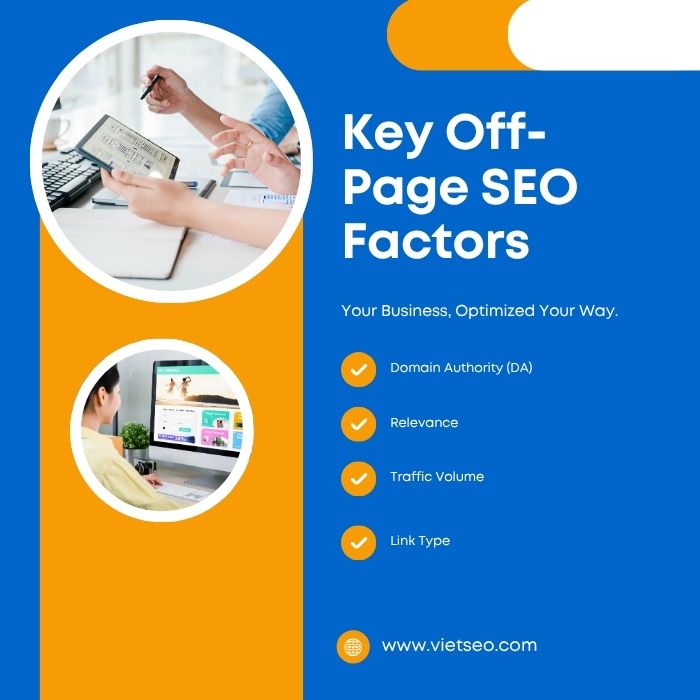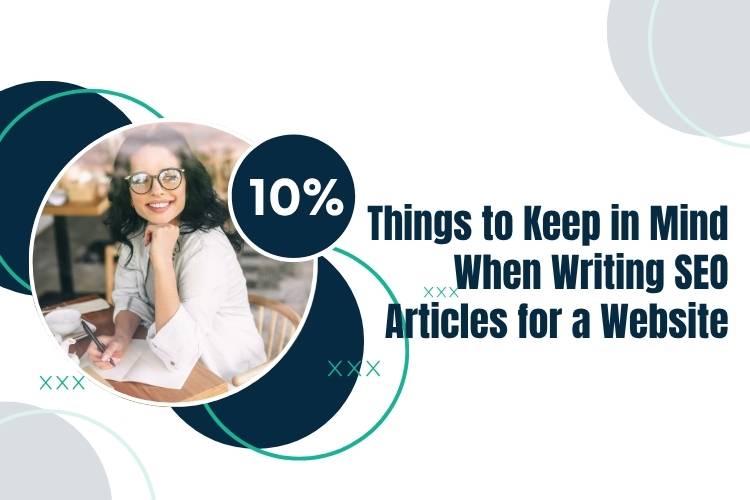Overview of Key Factors and Tasks in Off-Page SEO | Viet SEO
That’s why Off-Page SEO - through strategies like backlink building, social media marketing, and local SEO - plays a crucial role in your overall visibility. Viet SEO services specialize in building effective Off-Page strategies that help your website earn trust, authority, and higher search engine rankings.
What Is Off-Page SEO?
Off-Page SEO is all about what happens beyond your website — it’s the set of strategies and actions that build your site’s credibility, authority, and visibility across the web. Instead of focusing on content or technical structure like On-Page SEO does, Off-Page SEO strengthens how other people and platforms perceive your brand.
In simple terms, it’s everything you do outside your own domain to prove to Google (and users) that your website is trustworthy and valuable. This includes:
- Earning quality backlinks from reputable websites that point to yours — each one acts as a “vote of confidence” in the eyes of search engines.
- Building your brand presence on social media, where engaging posts and shares help your content reach wider audiences and drive organic attention.
- Guest posting or collaborating on other websites to attract new readers, boost referral traffic, and showcase your expertise in your industry.
The ultimate goal of Off-Page SEO is to strengthen your online reputation and authority. When other credible sources talk about or link to your website, Google interprets it as a sign of trustworthiness — helping your site rank higher in search results.
At Viet SEO, we develop tailored Off-Page SEO strategies that go beyond just link building. Our approach focuses on sustainable growth — building authentic relationships, improving brand visibility, and ensuring that every signal about your website online works together to increase both rankings and long-term business success.
Why Is Off-Page SEO Important?
Google’s search algorithms may evolve, but one principle has always stayed the same: a website’s reputation across the internet plays a major role in how it ranks. That’s where Off-Page SEO comes in — it determines how much search engines and users trust your brand.
Here’s why Off-Page SEO is essential for long-term success:
- Builds authority and credibility: When reputable websites link back to yours, it signals to Google that your content is reliable and worth referencing. Each backlink acts like a “vote of confidence” that boosts your domain authority and ranking potential.
- Expands reach and drives traffic: The more your content is shared on social media or mentioned on high-traffic websites, the more visibility you gain. This naturally attracts new visitors and potential customers from diverse online channels.
- Enhances brand reputation within your industry: A consistent Off-Page SEO strategy — through backlinks, mentions, and collaborations — helps you position your business as a trusted voice and thought leader in your niche.
In short, Off-Page SEO amplifies the credibility and reach of your entire online presence. That’s why Viet SEO prioritizes it as a core part of every digital growth strategy — ensuring your website doesn’t just rank, but stands out.
Backlinks – The Core of Off-Page SEO
Backlinks are the foundation of any effective Off-Page SEO strategy. They act as digital endorsements — every time another website links to yours, it signals to Google that your content is valuable, trustworthy, and worth referencing. However, not all backlinks are created equal. Google’s algorithm evaluates both the quantity and the quality of these links before determining their impact on your rankings.
A strong backlink profile should emphasize:
- Link quality: Links from reputable, high-authority domains (such as established media sites, industry leaders, or trusted directories) have far more impact than those from low-quality or spammy websites.
- Relevance: Backlinks from sites within your niche or related industries are considered more meaningful and valuable, as they reflect topical expertise and genuine connections.
At Viet SEO, we focus on building ethical, white-hat backlinks that strengthen your site’s authority naturally. Instead of chasing short-term gains through risky tactics, we prioritize sustainable link-building strategies — including guest posting, content partnerships, and digital PR — that improve your credibility, visibility, and long-term search performance.
Viet SEO Implements Effective Off-Page SEO Strategies
Building a powerful online presence requires more than just optimizing your website’s content — it also demands consistent, well-planned Off-Page SEO strategies. These efforts help your site earn trust, authority, and visibility across the web. At Viet SEO, we focus on proven methods that strengthen your brand reputation and improve your rankings over time.
1. Building High-Quality Backlinks (Link Building)
Backlinks remain one of Google’s most important ranking factors. The goal is not to get many links, but to get the right ones — from credible, relevant sources.
Effective link-building techniques include:
- Guest blogging: Write valuable articles for reputable websites to earn backlinks and reach new audiences.
- Forum and Q&A participation: Share expert insights and link to your site when relevant to provide genuine value.
- Strategic partnerships: Collaborate with complementary businesses or industry directories for natural link exchanges.
Important: Never buy links or use spammy link farms. Such shortcuts can lead to severe Google penalties that harm your rankings and reputation.
2. Social Media Engagement
Social media isn’t just for visibility — it’s a key part of Off-Page SEO. When people share, comment, or mention your content, those signals indirectly influence your rankings.
How to make it work:
- Regularly share your content on platforms like Facebook, LinkedIn, Twitter, and Pinterest.
- Respond to comments, engage in conversations, and build meaningful community interactions.
- Use visuals and hashtags strategically to increase reach and shareability.
When done right, social media helps amplify your content and creates opportunities for organic backlinks through viral sharing.
3. Local SEO Optimization
For businesses targeting local markets, Local SEO is a game changer. It ensures that customers in your area can find and trust your business online.
Steps to optimize for local visibility:
- Set up and verify your Google My Business profile.
- Maintain consistent contact details across all online platforms and directories.
- Encourage happy customers to leave positive reviews, which can boost your credibility and local rankings.
A strong Local SEO presence helps you dominate local searches and attract more nearby clients.
4. Content Marketing
Quality content fuels every Off-Page SEO strategy. When your content educates, inspires, or solves problems, people naturally share and link to it.
Best practices include:
- Writing in-depth blog posts on topics relevant to your industry.
- Publishing data-driven research or comprehensive guides that others reference.
- Creating infographics, videos, and podcasts that make complex topics engaging and shareable.
Guest Blogging – The Secret to Earning Quality Backlinks
Guest blogging is one of the most powerful and sustainable link-building methods. By contributing well-researched articles to respected websites in your field, you:
- Gain exposure to new audiences.
- Strengthen your reputation as an expert.
- Earn high-quality backlinks that improve your site’s authority.
At Viet SEO, we combine all these Off-Page strategies — from link building and content marketing to social media and local SEO — into a cohesive plan. The result is sustainable growth, stronger rankings, and a trusted online brand that stands out in your industry.
Key Off-Page SEO Factors
Off-Page SEO is built on several core elements that shape how search engines evaluate your website’s authority, credibility, and relevance. These factors work together to tell Google whether your site deserves to rank higher than competitors. The more trustworthy and authoritative your online reputation appears, the stronger your SEO performance will be.
A professional Viet SEO strategy focuses on optimizing each of these factors to create long-term, sustainable results.
1. Domain Authority (DA)
Your website’s Domain Authority is a key signal of trust and influence. Sites with higher DA are viewed as more credible, which makes their backlinks extremely valuable.
Tip: Earning backlinks from well-established, high-DA domains (such as media outlets, government sites, or recognized industry leaders) can significantly boost your own authority.
2. Relevance
Google prioritizes links that come from websites within the same or related industries.
Example: A digital marketing blog linking to Viet SEO carries more SEO weight than a random link from a food recipe site.
Relevant backlinks demonstrate that your content aligns with your niche and offers real value to your target audience.
3. Traffic Volume
Not all backlinks are equal in impact. A link from a high-traffic website exposes your content to more visitors and sends stronger authority signals to search engines.
Insight: Focus on getting featured on active, trusted platforms where users are genuinely engaged.
4. Link Type
Understanding the types of backlinks is essential for building a natural, diverse link profile:
- Do-Follow Links: Pass SEO value (“link juice”) directly to your site, helping improve rankings.
- No-Follow Links: Don’t transfer direct SEO authority, but they’re still valuable for traffic generation, visibility, and maintaining a balanced backlink profile.
In summary, effective Off-Page SEO isn’t about collecting as many links as possible — it’s about earning the right kinds of mentions and backlinks. At Viet SEO, we craft strategies that prioritize quality, relevance, and authority to ensure your website achieves sustainable ranking growth and a solid online reputation.
Benefits of Off-Page SEO
Off-Page SEO delivers far more than just better Google rankings — it builds the foundation for your brand’s long-term online success. By strengthening how your business is perceived across the internet, Off-Page SEO helps you gain authority, trust, and consistent visibility.
At Viet SEO, we implement strategic Off-Page techniques that go beyond link-building — focusing on authentic engagement, meaningful partnerships, and brand growth across multiple platforms.
Here are the key benefits you can expect:
- Higher search rankings: Quality backlinks and positive online signals help your website climb higher on Google, making it easier for potential customers to discover your business.
- More organic and referral traffic: Mentions and shares from reputable websites and social platforms attract steady streams of new visitors, expanding your audience without relying on paid ads.
- Stronger brand credibility: Consistent Off-Page efforts — including backlinks, reviews, and social interactions — establish your brand as a trusted authority in your industry.
- Long-term growth and visibility: With ethical, data-driven Off-Page strategies, your website’s reputation and rankings continue to strengthen over time.
In short, Off-Page SEO transforms your website from just an online presence into a recognized, trusted brand. Viet SEO’s tailored Off-Page SEO services ensure that every action you take online works toward building credibility, expanding reach, and achieving sustainable business growth.
How to Avoid Penalties for Unnatural Links
Google places great emphasis on link quality — and it actively penalizes websites that use manipulative or spammy link-building tactics. To protect your rankings and maintain a healthy backlink profile, it’s essential to understand what not to do and how to build links the right way.
What to Avoid:
- Buying or selling backlinks: Paid links violate Google’s Webmaster Guidelines and can lead to severe ranking drops or even manual penalties.
- Placing links on irrelevant or low-quality websites: Backlinks from spammy or unrelated domains hurt your site’s credibility rather than helping it.
- Using identical anchor text excessively: Repeating the same keywords in every backlink looks unnatural to Google and can trigger algorithmic filters like Penguin.
Smart Solutions:
- Focus on earning natural backlinks from reputable, contextually relevant sources such as media sites, industry blogs, and business directories.
- Diversify your anchor text: Use a mix of branded, generic, and keyword-related anchors to maintain a natural link profile.
- Regularly audit your backlinks: Monitor your link profile to spot suspicious or harmful links, and remove or disavow them using Google’s Disavow Tool when necessary.
At Viet SEO, we emphasize white-hat link-building — ensuring every backlink earned is genuine, relevant, and safe for your long-term growth. Our team routinely audits and maintains clients’ backlink profiles to protect them from penalties and keep their SEO performance strong and sustainable.
Conclusion
Off-Page SEO plays a vital role in determining how your website performs in search rankings, how much traffic it attracts, and how credible it appears within your industry. While On-Page SEO focuses on optimizing the content and structure of your site, Off-Page SEO extends your influence across the web - building trust, authority, and visibility through backlinks, mentions, and engagement.
To achieve lasting results, businesses must focus on quality over quantity — earning backlinks from reputable, relevant sources and combining them with strong On-Page optimization. This balanced approach helps Google recognize your site as both valuable and trustworthy.
At Viet SEO, we craft tailored Off-Page strategies that align with your brand’s goals. Every campaign we build prioritizes high-quality links, ethical practices, and authentic content, ensuring sustainable growth that endures algorithm changes and industry shifts.
Invest in a sustainable SEO strategy. Earn quality backlinks. Create valuable content. Build long-term success with Viet SEO.




